The application of Nitinol in medical devices continues to grow
2025-03-20 22:45:06
The application of Nitinol in medical devices continues to grow
Nitinol, due to its unique shape memory effect and superelasticity, has continued to grow in the field of medical devices in recent years. Composed of nickel and titanium, this material has excellent biocompatibility, corrosion resistance, and mechanical properties, making it ideal for the medical industry. The following is a detailed analysis of the main applications of Nitinol in medical devices and their growth trends.
1. Cardiovascular applications
Cardiovascular disease is one of the major health problems worldwide, and the application of Nitinol in cardiovascular medical devices is particularly prominent.
Cardiovascular stent
Nitinol stent is an important tool in the treatment of coronary artery disease. Its shape memory properties allow the stent to return to a preset shape at body temperature, thereby supporting narrow or blocked blood vessels. Compared with traditional stainless steel stents, Nitinol stents have better flexibility and fatigue resistance, can adapt to the natural movement of blood vessels, and reduce the risk of restenosis.
Plugging device
Nitinol is also used in the manufacture of heart occluders for the treatment of congenital heart diseases such as atrial septal defects and ventricular septal defects. The occluder is implanted through minimally invasive surgery, and its superelasticity allows it to adapt to the complex shape of the heart structure and provide long-term stable support.
Catheter and guide wire
In interventional surgery, Nitinol catheters and guides are widely used because of their flexibility and anti-kinking properties. They can easily pass through crooked blood vessels, reducing surgical risks and improving surgical success.
2. Orthopaedic and spinal applications
The application of Nitinol in orthopedics and spinal surgery also shows significant growth potential.
Spinal implant
Nitinol is used to make spinal fusion and interbody fusion devices to help treat degenerative spinal diseases and scoliosis. Its shape memory properties allow the implant to revert to a preset shape at body temperature, providing better stability and fusion.
Orthopedic fixation device
Nitinol is used to make fixation devices such as bone pins, bone plates and bone anchors. Its superelasticity allows it to adapt to the natural movement of the bone, reducing the stress shielding effect and thus promoting bone healing.
Orthopaedic instrument
Nitinol is also used in the manufacture of orthopedic devices such as external fixators and orthopedic braces. These devices take advantage of the elastic properties of Nitinol to provide patients with a comfortable wearing experience and effective treatment results.
3. Applications in the dental field
In the dental field, the application of Nitinol is mainly concentrated in orthodontics and implants.
Orthodontic arch wire
Nitinol orthodontic wire is widely used because of its superelastic and shape memory properties. They are able to provide sustained and gentle corrective force in the oral environment, reducing patient discomfort and shortening treatment time.
Dental implant
Nitinol is used in the manufacture of dental implants and restorations, and its biocompatibility and corrosion resistance make it an ideal dental material. In addition, the elastic modulus of Nitinol is close to that of bone, which can reduce stress concentration around the implant.
4. Minimally invasive surgical instruments
With the popularization of minimally invasive surgical techniques, the application of Nitinol in surgical instruments is also increasing.
Endoscopic instruments
Nitinol is used to make instruments such as biopsy forceps, scissors and grabbers for endoscopes. Their superelasticity allows these instruments to operate flexibly in tight Spaces, improving surgical accuracy and safety.
Surgical robot
Nitinol is used to manufacture actuators and sensors for surgical robots, and its shape memory effects and superelasticity provide greater flexibility and accuracy for robots.
5. Other medical applications
In addition to the above areas, Nitinol also shows great potential in other medical applications.
Vascular filter
Nitinol is used to manufacture inferior vena cava filters for the prevention of pulmonary embolism. Its superelasticity allows the filter to deploy stably in blood vessels and capture clots.
Artificial organ
Nitinol is used to make organs such as artificial heart valves and joints. Its biocompatibility and durability enable it to work stably for a long time.
Drug delivery system
Nitinol is used to make drug delivery stents and micropumps, and its shape memory properties can control the rate and location of drug release.
Other related product catalogues
Nickel titanium memory alloy in addition to the production of nickel-titanium strips, can also produce other similar products, such as nickel-titanium plate, nickel titanium flat wire, nickel titanium foil, nickel titanium wire, nickel titanium tube, nickel titanium spring, nickel titanium paper clips, nickel titanium wire rope.
|
|
|
|
|
|
|
|
Baoji Hanz Metal Material Co., Ltd.
Gaoxin Avenue, BaoJi city, ShaanXi province China
Tel: 86-917-3258889
Mobile, Whatsapp,Wechat: +8618091719909
Email:baojihanz-niti@hanztech.cn






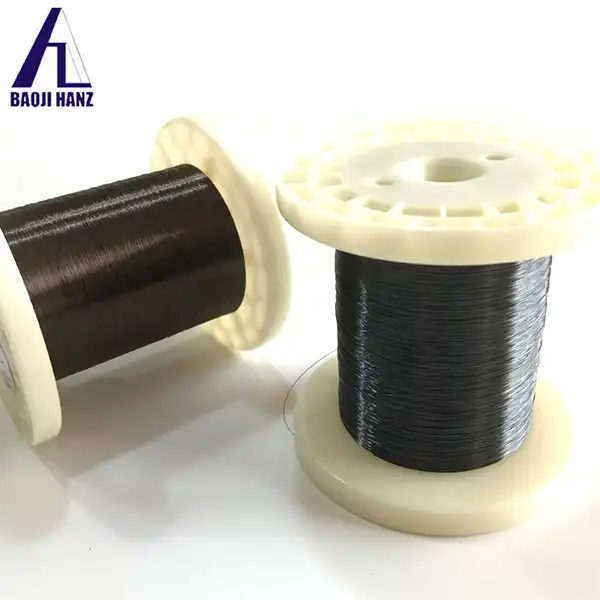
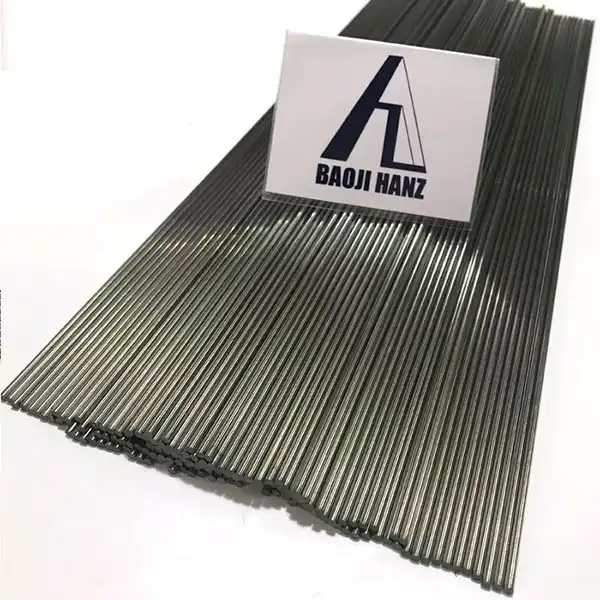
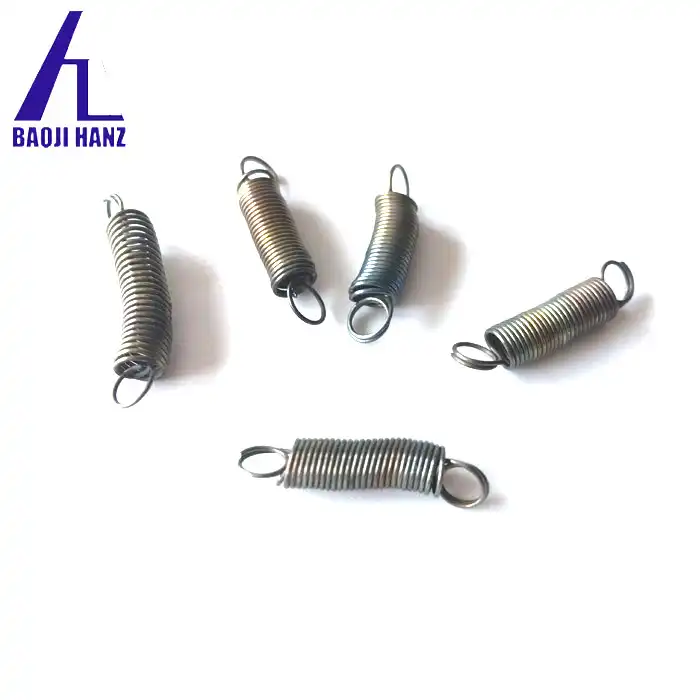
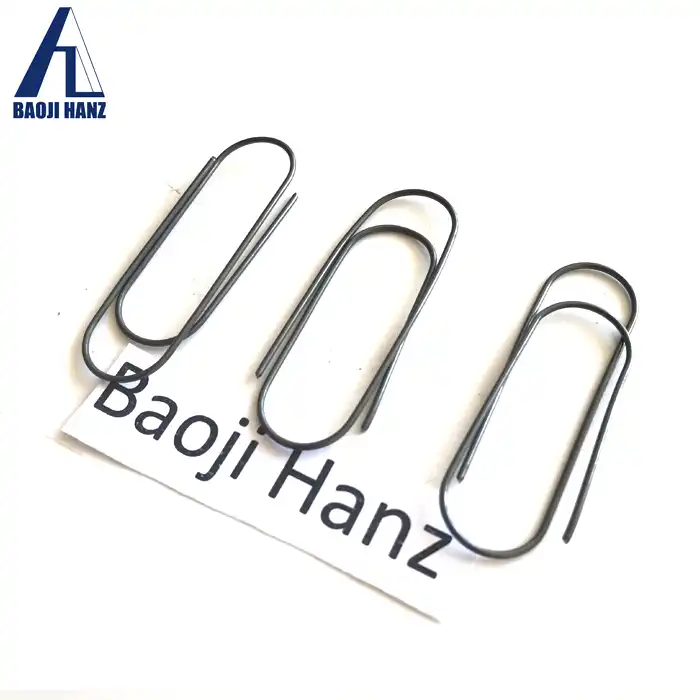
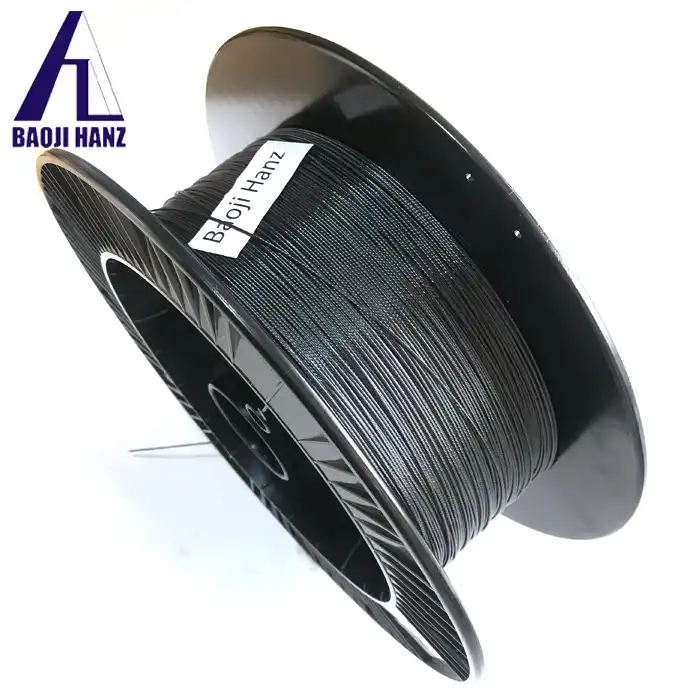
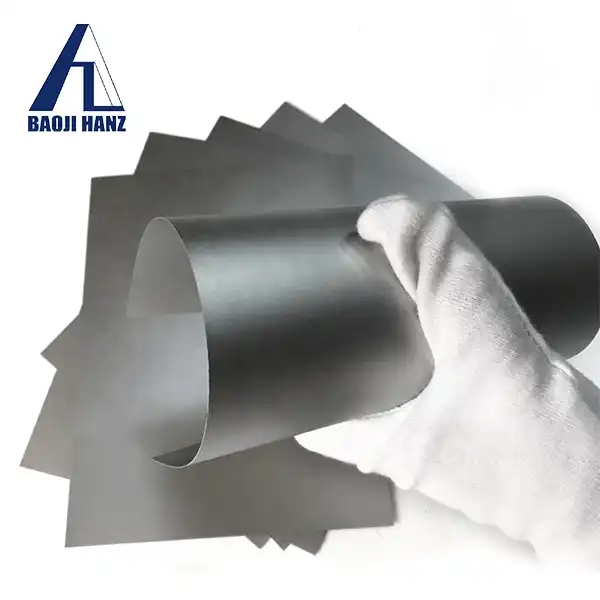
.webp)